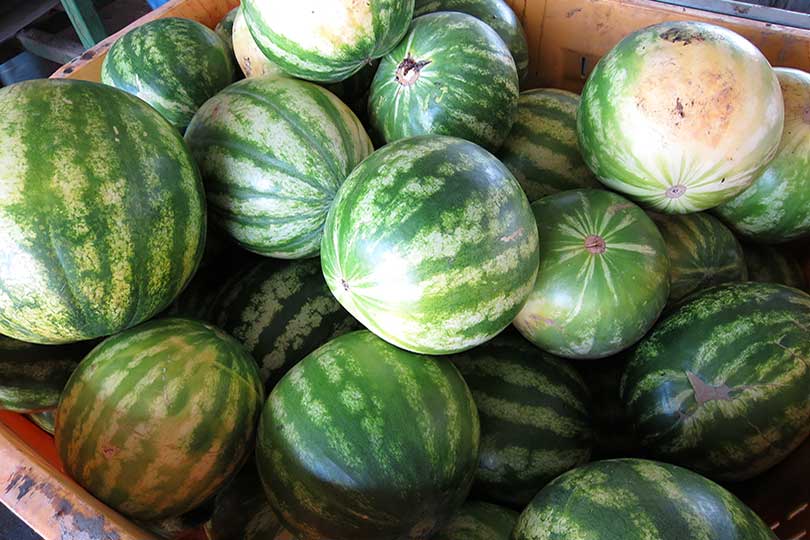A unique vegetable breeding program at the Texas A&M AgriLife Research and Extension Center in Uvalde could bring improved onion, watermelon, tomato and black-eyed pea varieties to farmers in South and Central Texas, according to AgriLife Today.
“The multidisciplinary breeding program, involving breeders, physiologists, pathologists and entomologists, is the screening and development of new germplasm and ultimately improved varieties are conducted in real-life environmental conditions,” said Dr. Daniel Leskovar, center director and vegetable physiologist. “This will ensure the cultivars we breed are highly adaptable, as well as have abiotic and biotic stress tolerance and provide high yield and quality.”
Leskovar said the ultimate goal is to directly benefit the Texas vegetable industry, especially farmers in South, Southwest and Central Texas.
“Our program will develop new cultivars to adapt to these stress conditions,” Dr. Subas Malla, Texas A&M AgriLife Research vegetable breeder at the center, said. “Our breeding program will also develop mapping populations to identify diagnostic markers for quantitative trait loci for biotic and abiotic stress tolerance.”
He said the mapping to identify biotic and abiotic stress-tolerance markers will be used in the onion-breeding program via marker-assisted selection.
“Onion takes two years to complete a crossing cycle and consequently takes longer for cultivar development,” Malla said. “By reducing the number of years to develop a cultivar, we can substantially increase the genetic gain per year in our breeding. We plan on using the doubled-haploid technique, which allows for faster generation of inbred lines for hybrid cultivar and open pollination cultivar development.”
Malla said addressing pest and disease resistance will be especially important in developing improved onion and tomato cultivars.
Pests such as thrips can have a devastating economic impact on onion crops, and thrips and whitefly can cause substantial tomato crop losses.
Diseases like iris yellow spot virus in onions and tomato yellow leaf curl virus in tomatoes can significantly affect quality and yield.
Malla said the breeding program also is interested in promoting the planting of cowpeas–black-eyed peas–as a summer crop for Central and South Texas farmers.

